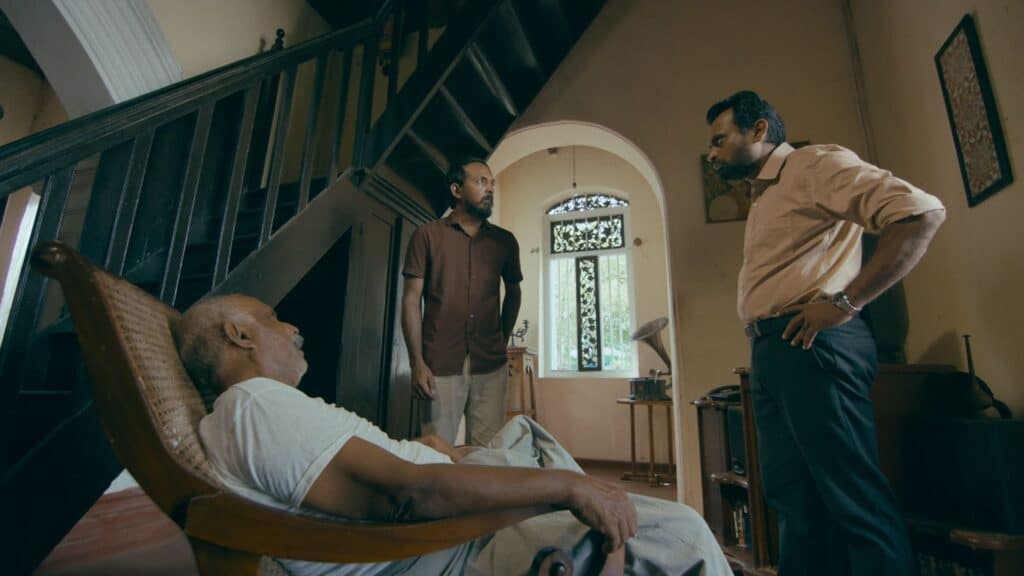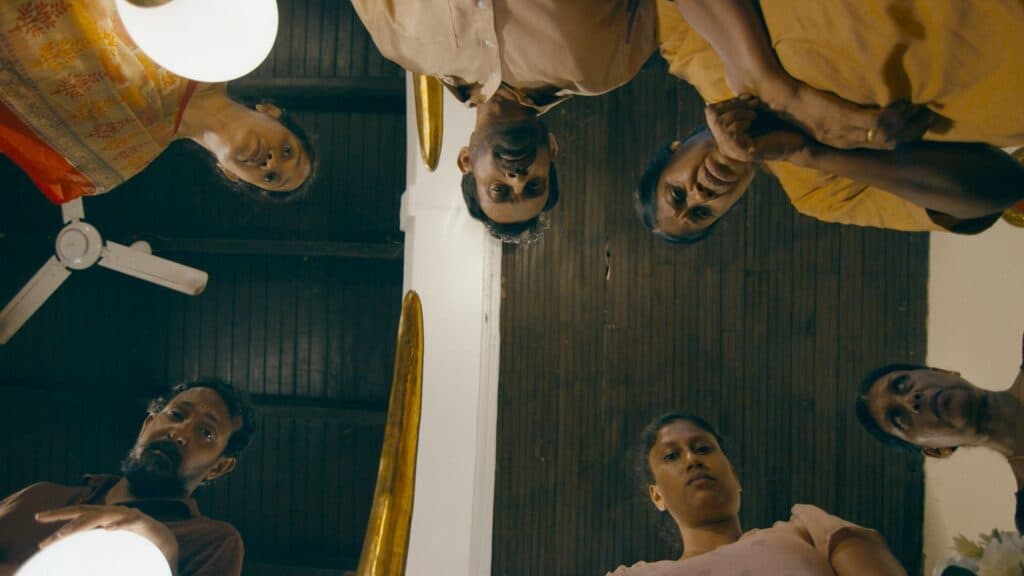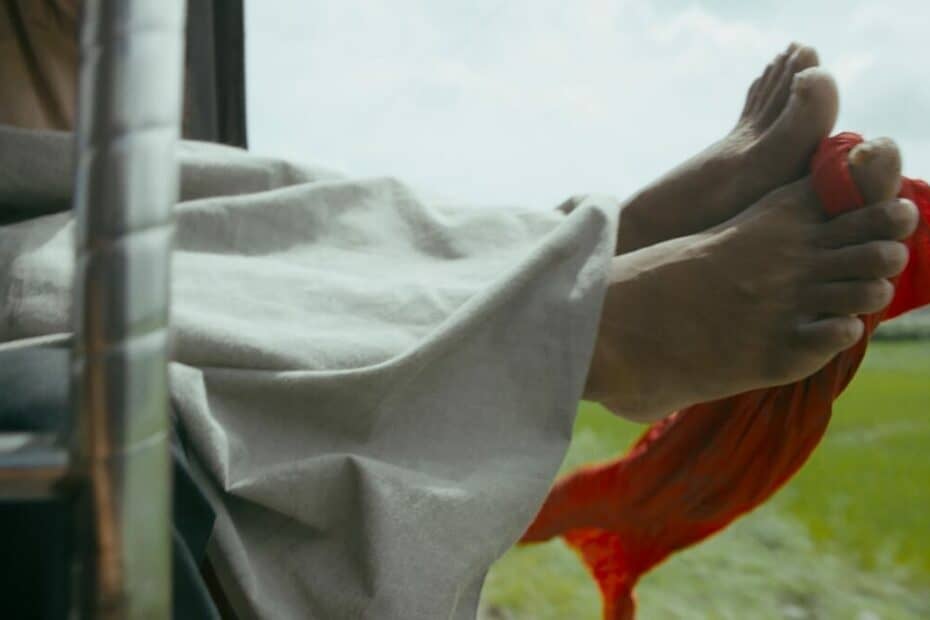Tentigo (Nelum Kuluna) is the first feature by Ilango Ram, and it lives up to its title. In the province of Sri Lanka, the patriarch of the family suddenly dies in front of the TV. However, his male organ still seems to play a solo even though the rest of the orchestra has vanished. One of his sons finds him and quickly notifies his brother. Now, they have to deal with the corpse to avoid losing face with a public erection. Did I mention that the film is a comedy? What may sound like a recipe for a crass slapstick comedy turned out to be one of the most pleasant surprises of this year’s Black Nights Film Festival.
Firstly, the sons will attempt different methods to get rid of the erection, but to no avail. A doctor will later try a method that is more off the bat but without achieving the desired outcome. There is also the nosey neighbour Kamala to consider. When the brothers understand that they can’t fix the father’s condition at home, they call for a taxi. The dead body is too tall for the width of the vehicle, so the driver simply attaches a red ribbon to the father’s toes. Besides the obvious practical purpose, the choice of colour has a political reference for a local audience. Something that the director and the producer Hiranya Perera explained to me when I interviewed them.

Numerous complications will ensue involving not only the aforementioned doctor but also a chief monk and a drunken voodooist. I won’t go into details about what happens, but everything is captured by Ram’s camera (he is the cinematographer, as well) in an interesting fashion. Already, when the father is found beneath the stairs leading upwards, there are striking compositions which are not merely decorative but also point toward hierarchical structures. The family is powerful, but now their power is fading, and so is the state of the house. The director employs an interesting camera position throughout the film, which is achieved in an unusual fashion in a film that, in many ways, is a comedy of manners.
The style of Tentigo
There are other inspired stylistic choices. The editing by Aathan Sivananthar ensures a steady pace. There might be instances where the work could have been trimmed, but towards the end, the film moves towards a crescendo that made me think about Agatha Christie’s Murder on the Orient Express. The single most surprising contribution may be the one from composer Leon Bob James. He is a multi-instrumentalist who uses a wide range of singular instruments, significantly adding to Tentigo’s ambience. Another stylistic decision is that the actors deliver there lines seriously, not playing for simple comedic relief. In contrast, that makes the scenes where the sons are thinking back on their father even more poignant.
Yet another sign of its success is that there will be an Indian remake of the film. It is the first time that has happened. Normally, it’s the other way around, that Indian films are remade in Sri Lanka. The remake will be directed by Ram but in Tamil, whereas the original film was in Sinhalese.

It is a feel-good comedy, but not in the sense that the term has been used lately for sugary films that constantly pander to the spectator, but in its most mature meaning. Tentigo provides plenty of laughs but manages to say something, not only about Sri Lankan society but life at large. Despite the subject matter, the film has a rhythm and elegance that made me think of directors such as René Clair; however hyperbolic the comparison might sound for a first feature. It is a work that deftly juggles topics like family secrets and the role of religion in society and still remains constantly hilarious.
The film won the Special Jury Award at the Black Nights Film Festival. It was well deserved, and hopefully, Tentigo will travel to several festivals and obtain distribution as well.

